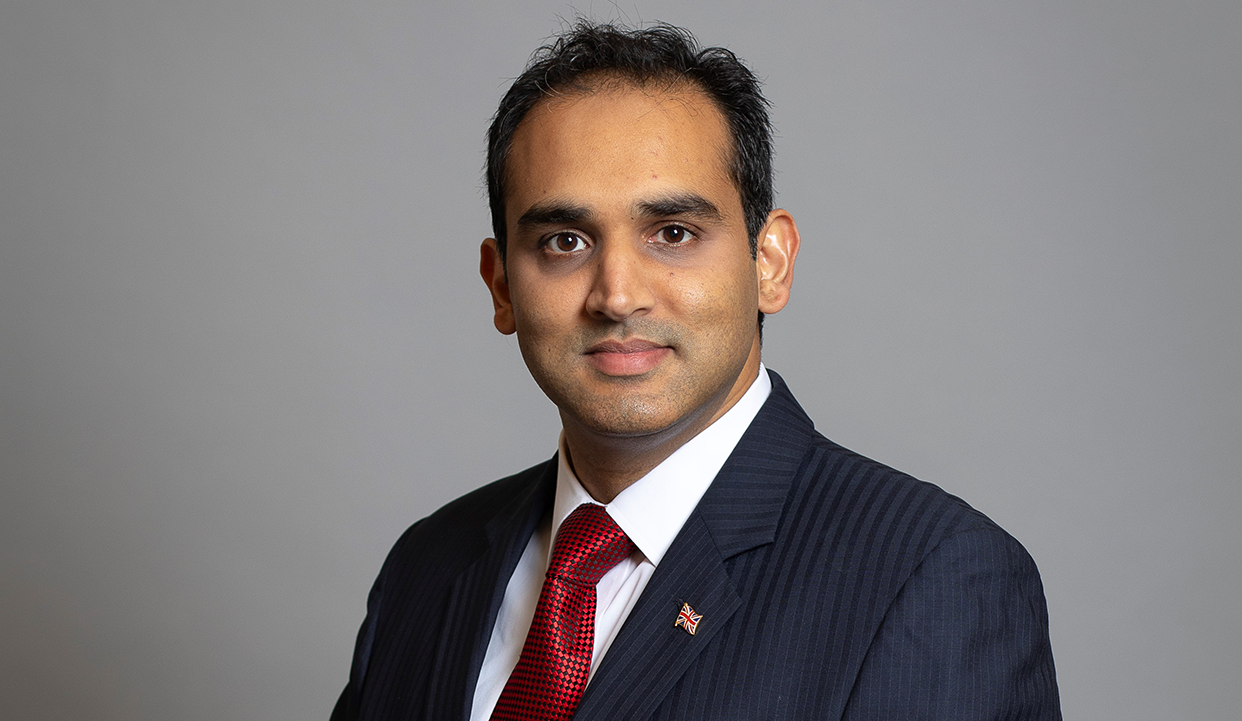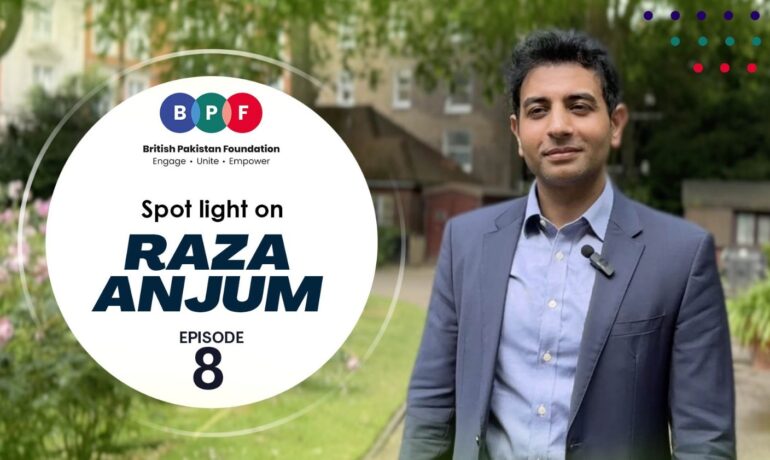Spotlight on Lord Sarfraz
Lord Sarfraz is a Member of the House of Lords. On his nomination, he became the third youngest Peer in parliament.
He was previously a Treasurer of the Conservative Party and an advisor to the party leadership on outreach. His career has included roles in private equity and venture capital at the Electrum Group, Draper Associates and 3i Group. He is founder of Better Grain, an agricultural technology business that works for thousands of smallholder farmers to increase their incomes and yields, and reduce their carbon footprint. Lord Sarfraz’s current board and advisory roles include at Texas A&M University, Panthera, WWF Pakistan, the FAIRR Initiative and the Pardee School at Boston University.
Lord Sarfraz was born in London, and grew up in Pakistan. He established the Lord Sarfraz Foundation which works on a range of social projects in Pakistan.
He graduated from Boston University, and received an MSc in Information Systems (with Distinction) from the London School of Economics.
How did you get started in your career?
Since I was a child, I was interested in public service. I was fortunate to join the Conservative Party, become a Treasurer, and advise on outreach – and then by the grace of God, be appointed to the upper house of parliament. I owe my appointment to Prime Minister Boris Johnson, who has given me this opportunity to serve, and will always be very grateful to him.
In my earlier career, I worked in technology venture capital, private equity and started an agricultural technology business working with thousands of smallholder farmers. When starting my career, there were several British-Pakistanis one could look up to. One of them was Asif Rangoonwala, your Chairman. I remember the first time I met him – I was a young college graduate, and he was running a successful business called Eurobuns, amongst other things. I pitched a startup idea to him – he patiently listened and gave me valuable advice. Even back then, he was full of optimism and energy, and cared deeply about future generations of British-Pakistanis. We are lucky to have business and community leaders like him in the UK.
What is a highlight of your career?
Being in the House of Lords is a great honour and I take the responsibility very seriously. I try and reflect every evening on the amount of public service I have been able to deliver, and how I can do more.
How would you describe the type of work that you do each day? Why is it important?
The Lords sits in the afternoons. It is designed so members are free to do other activities – business, not-for-profit, or whatever they like – in the mornings. These outside experiences bring diverse perspectives to debates in the chamber.
If one wants to participate meaningfully, it takes time to understand legislation, attend briefings, read reports, speak to stakeholders and engage with colleagues. There is a lot to learn, and the chamber is full of very knowledgeable, experienced and talented people. Some were cabinet members before I was born!
I have recently joined the Science and Technology Committee, which I enjoy very much. This means participating in weekly committee meetings, and the evidence sessions are especially interesting. We are currently looking at the future of battery and fuel cells technology, and how it will contribute to a Net Zero economy.
What has been the greatest hurdle for you to overcome in your career?
I’ve been very fortunate throughout my career to be given several breaks. An example is when I joined the Conservative Party – I didn’t know a single person. Yet the party was incredibly welcoming, open to new ideas, and warmly accepting of me as an outsider. I grew up in Pakistan, with very different perspectives and experiences. I still felt very much at home in the Conservative Party.
What is the best thing about your job?
It’s the opportunity to serve people. This can be done through parliamentary means – legislation and holding government to account – but also by using the platform sensibly. I recently launched the Lord Sarfraz Foundation and our work on children’s mental health in Pakistan is extremely rewarding.
What are your plans for the future?
Since coronavirus, I’ve replaced long-term planning in favour of focusing on today. Right now, I am committed to doing my bit to ensure the Rohingya, both in Myanmar and in Bangladesh, are able to live in their homes, and without threat of violence. They have been through horror and devastation, and we must make sure Rohingya children have an opportunity to live a full, healthy and prosperous life.
How do you unwind?
I am blessed with two daughters, both under the age of five! I unwind by spending as much time with them as possible. My wife has been an incredible source of support for me, and together we do our best to be very engaged parents. I also enjoy playing tennis when I can.




